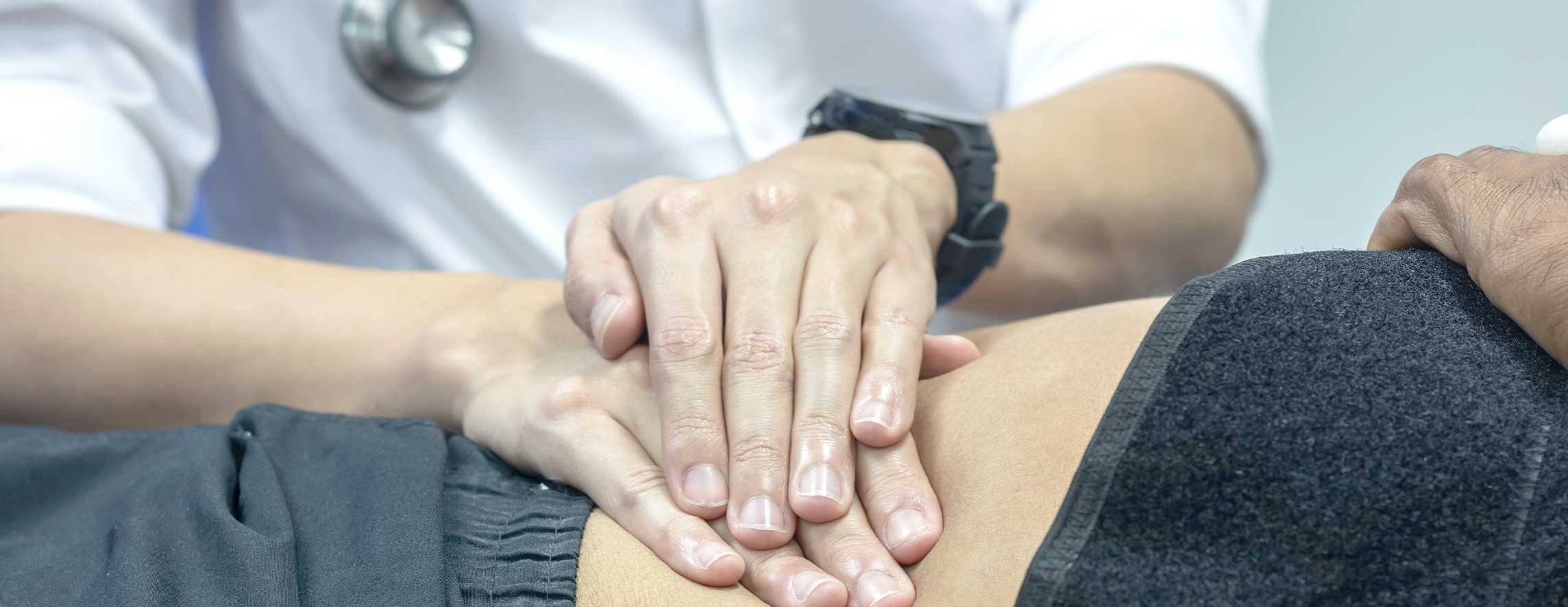How does a hernia develop?
+
A hernia occurs when an organ pushes through a weakened muscle wall, causing a noticeable bulge or lump in the skin. It usually develops around the abdomen and groin areas but can also happen at the chest or belly button. Though not life-threatening, a hernia can bring about severe pain and discomfort, and may eventually lead to strangulation of the organ, which is a medical emergency.
What are the signs and symptoms?
+
The most common sign of a hernia is a protruding lump or bulge around the abdomen area. Other symptoms also include pain, burning sensation and bloatedness at the site of protrusion.
What are the different types of hernias?
+
Why are men more prone to inguinal hernia?
+
With inguinal hernia accounting for the bulk of hernia cases (75%) and men being more prone, it is no wonder male patients are concerned. The primary reason to this is because of how the male body is structured. In a man’s body, the inguinal canal is responsible for linking the spermatic cord and scrotum through the abdomen area – this natural body make-up puts men at higher risks.
How is a hernia diagnosed?
+
In inguinal hernia, a noticeable lump or bulge is usually visible and can be diagnosed via a physical examination. For hiatal hernia, an X-ray and ultrasound will be ordered for diagnosis.
Can hernias subside by themselves?
+
By not straining on the protruding area or having lighter meals, it is possible to alleviate symptoms such as pain and discomfort slightly. However, hernias tend to become bigger over time and can develop into more serious conditions like strangulated hernia. At our hernia clinic KH Ng Surgery, we recommend that all hernias be surgically repaired.
How does a hernia become strangulated?
+
A strangulated hernia happens when the intestine that was pushed out of the abdominal wall becomes clamped shut by surrounding muscles, causing blood supply to be cut off. This leads to perforation and/or infection of the intestine, and may eventually result in organ failure. This is a medical emergency and surgery should be performed as soon as possible.
What are the available hernia treatment options?
+
All diagnosed hernias should be treated promptly with hernia repair surgery. Our clinic offers both traditional open hernia surgery and laparoscopic hernia repair. For older and weaker patients, a medical belt called a truss may be recommended instead. This hernia truss keeps the hernia from sliding out of the abdomen opening.
What happens during a hernia repair surgery?
+
A basic hernia repair surgery, also known as a herniorrhaphy, is done by making an incision at the site of the hernia to return the protruding organ to the original position. In the case of a hernia that is oversized and cannot be pushed back, nylon meshes are used to contain the hernia and strengthen the muscle wall. This procedure is called hernioplasty. For patients seeking faster recovery and reduced pain, our hernia surgeon Dr Ng Kheng Hong is skilled in laparoscopic hernia repair which involves making a few smaller incisions on the surgical site, hence resulting in lesser downtime.
Hernia repair are day surgeries that are generally considered to be safe and effective. With minimally-invasive laparoscopic hernia repair, you can expect an even smoother and faster procedure, with lesser pain and downtime.
Is hernia repair surgery painful?
+
Our hernia repair surgeries are painless as they are performed under local or general anaesthesia. Some pain is to be expected post-surgery. Dr Ng will provide recommendations on your recovery and diet, and pain-relief medication will be prescribed to you.
Do I have to be hospitalised for hernia repair surgery?
+
No, hernia repair is regarded as safe and fast same-day surgeries. This means you can be discharged on the surgery day itself.
What is the downtime for hernia repair like?
+
After a hernia surgery, it is common to experience some pain. Generally, you can resume normal activities when you are ready and as long as it doesn’t cause noticeable pain. You can also consume food as per normal. Most of our patients return to work within a week.
What are the chances of hernia recurrence?
+
Hernia recurrence rates are reported to be between 0.2% to 10%. Dr Ng will provide professional medical advice on lifestyle changes that you can adopt to further prevent a recurrence, such as limiting activities that require heavy lifting. You are also recommended to schedule a follow-up review and examination with us every 5 years.




